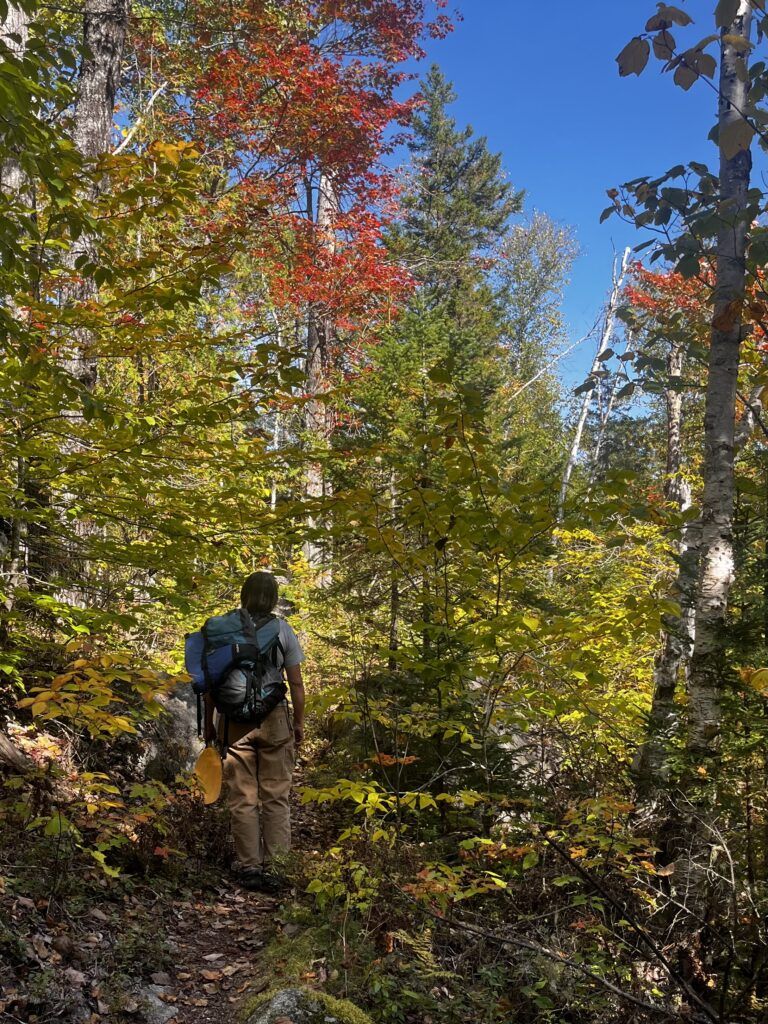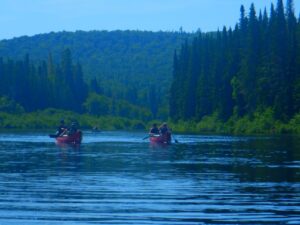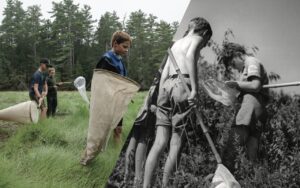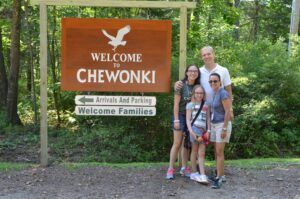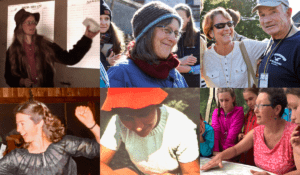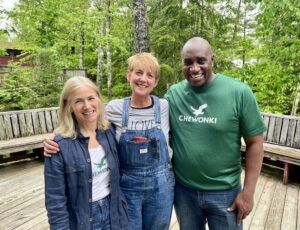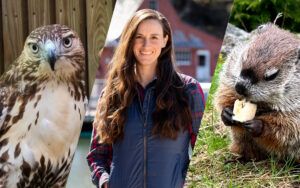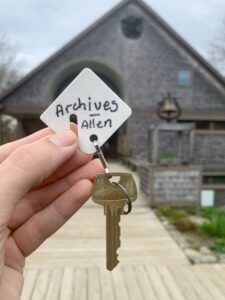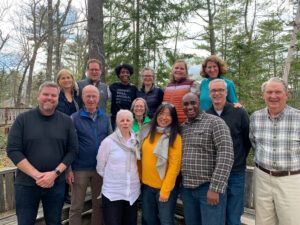A Portage Through Time at Debsconeag
by Greg Shute, Director of Northwoods and Coastal Properties
As I traverse the portage trail on this beautiful Autumn day, I’m deep in thought about the Wabanaki and, specifically, the Penobscot People who first portaged birchbark canoes here. This is their Homeland. As I walk the trail through cedar, spruce, white birch, aspen, and past house-sized glacial erratics, I think of the land throughout the northeast that was stolen from Wabanaki, Cree, Innu, and Inuit. I remember the thousands of Indigenous children who were taken from their homes and never survived their time at residential schools. I think about my Inuit friends who were relocated from their ancestral homeland as children and my Wabanaki friends who are still fighting to be recognized and treated fairly. On this day, I also think about the resilience and grace of my Indigenous friends. Of the times that I have been welcomed into their worlds while leading Chewonki trips.
This portage trail between Fourth and Third Debsconeag Lakes has been traveled by the Wabanaki People since time immemorial. This important trail, which is a short paddle from Chewonki’s Debsconeag Lake Camps, is part of a travel route that connects Moosehead Lake and the headwaters of the Kennebec River with the waters that flow into the West Branch and then into the Penobscot River.
Indigenous Peoples Day may be a 3-day weekend for many, but for me, it is a solemn time to remember the past and recognize the harm done to our Indigenous neighbors. I launch my canoe on Third Debsconeag Lake and paddle a short distance to where I have an unobstructed view of Katahdin. As I gaze north at the mountain, I think I will never know this land and waterways as the Wabanaki. Still, I can use my influence to ensure that every visitor to Chewonki’s Camps on Fourth Debsconeag hears the accurate history of this place, most importantly, that we are on Wabanaki and, more specifically, Penobscot Homeland.
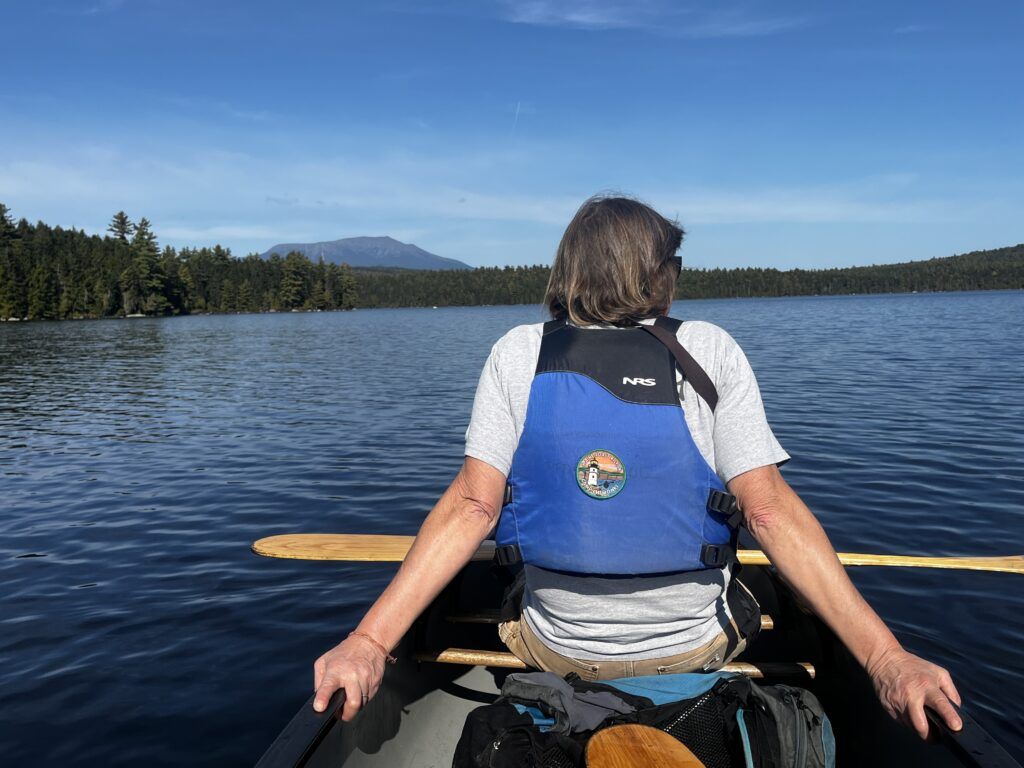
The Weight of “Wilderness”
by Jen Adams, Director of Outdoor Programs
Exploring the remote backcountry is one of my favorite pastimes. It’s what influenced me to travel to Maine and work for Chewonki, and it has pushed me to explore ecologically, culturally, and historically diverse lakes, rivers, mountains, and deserts. Many of my fellow backcountry travelers refer to these areas as “wilderness.” Yet, for our Indigenous neighbors, this word carries weighty connotations.
The word wilderness appears heavily in 18th-century writings, most frequently describing desolate and wasted landscapes. The wilderness was somewhere you did not want to end up, and you might fear for your life if you did.
By the end of the 19th century, the meaning of wilderness took a 180-degree turn. Influenced by Thoreau and other writers, people started to see wild spaces as worthy of preservation. Yellowstone was declared the first National Park in the US in 1872. Environmental historian William Cronon noted the shift, writing, “In a mere fifty years, Satan’s home became God’s own temple.”
Wilderness became a sacred space for many Americans, intertwining with our national identity and the myth of the frontier. Yet, this understanding does not provide space for the Indigenous people who have lived on these same lands for generations and continue to do so. In fact, the 19th-century concept of wilderness implies the backcountry was always free of people and should remain “pristine” forever. This understanding largely results from religious, historical, and cultural influences that ignore and disrespect Indigenous culture and history.
Backcountry enthusiasts like myself are confronted with a contradiction here. The places we visit are stunning, and we want to protect them. Many of us also recognize the terrible things our Indigenous neighbors have experienced at the hands of colonial governments as well, and we want to participate in healing and reconciliation. I believe supporting Indigenous rights to health, autonomy, and self-reliance is a way to start.
On this Indigenous People’s Day, I urge you to consider your own perspective on “wilderness” and how you can find language that respects and acknowledges the current and historical presence of Indigenous people on remote lands.
